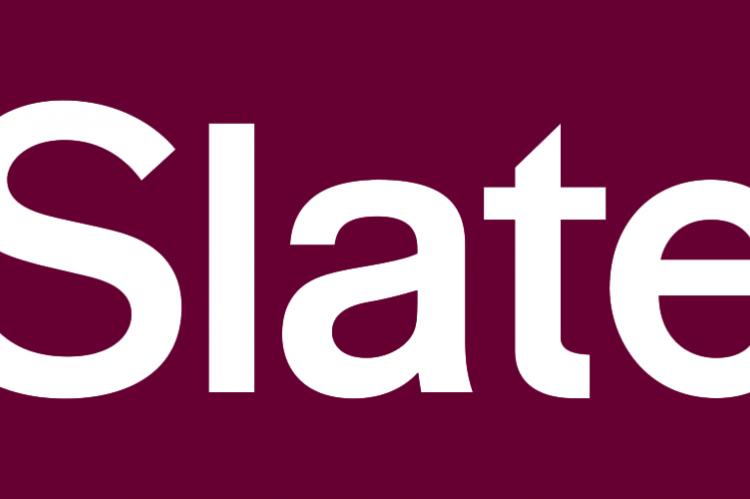Claim: President will continue to enjoy emergency powers in new system
An article published in Slate claims Turkish President Recep Tayyip Erdogan will enjoy emergency powers perpetually under Turkey’s newly implemented executive presidential system
On 24 June 2018, an article on Turkey’s latest presidential and parliamentary elections was published in Slate. The article claimed that re-elected president Recep Tayyip Erdogan will continue to use previously enforced state of emergency powers constitutionally granted to the post of president under the newly implemented executive presidential governance system as well.
“As president, Erdogan will now enjoy the emergency powers he claimed in the wake of the coup in perpetuity,” the article read, albeit without specifying which powers it addressed exactly. But it most likely seemed to refer to the presidential power to issue decrees having the force of law (DHFL) in a state of emergency which was already present in the now abandoned parliamentary system of Turkey.
As a matter of fact, the president will not “enjoy the emergency powers” he did under the parliamentary system “in perpetuity” under the presidential system because the nature of some important presidential powers was transformed by a 2017 referendum which paved the way to this system change.
First, it should be noted that the president will issue decrees in the new system, not DHFL – which are fundamentally different concepts – during non-emergency rule. Accordingly, presidential decrees will be severely restricted by parliamentary supervision in the new system. Also, the president will continue to issue DHFL in the state of emergency as in the parliamentary system. But the nature of this latter power changed as well – crucial points which went unmentioned in the article.
While the president can issue decrees and DHFL in a state of emergency, the parliament passes acts/codes/laws. But in terms of the hierarchy of norms, acts/codes/laws are superior to both DHFL and presidential decrees. The related part of Article 119 of the amendments reads as follows:
“The President can issue decrees on subjects concerning the executive. The fundamental rights, personal rights and duties in the first and second divisions, and the political rights and duties in the fourth division of the second section of the Constitution cannot be regulated by Presidential decrees. The President cannot issue decrees on issues that the Constitution says will be specifically regulated by law. Issues which are conspicuously regulated by law are exempt from Presidential decrees. When a law and a Presidential decree have different prescriptions, the law applies. A Presidential decree is annulled when the parliament passes a law on the same subject as the decree.”
In the parliamentary system, the DHFL were issued by the Council of Ministers and were submitted to the parliament for discussion. If the parliament ignored the discussion, there was no legal consequence of this omission: the DHFL remained active. In the new system, however, a DHFL issued by the president will also be presented to the parliament but if it is not discussed and given the final decision within three months, that DHFL will be annulled. The related part in the same article reads:
“Except for when the Grand National Assembly of Turkey cannot convene due to war and casus fortuitus, the presidential decrees issued in a state of exception will be discussed in and be decided by the Grand National Assembly of Turkey within three months. Or else, Presidential decrees issued in a state of exception will be canceled on their own.”
The parliament in the parliamentary system was dysfunctional to the extent that members of the parliament nearly played no role in processes of legislation other than voting for what was on the ballot. The underlying reason for this inaction was that 99 percent of laws passed by the parliament were drafted in the Council of Ministers and presented to the parliament as draft laws. As a result, most members of the parliament did not know of the content of the draft they voted into law.
The presidential system, however, abolishes the executive's right to draft laws. The only legislative proposal the executive would present to the parliament will be on the budget. This regulation will buttress the separation of the executive and the legislature, thereby emancipating the latter from the former's dominance. Accordingly, members of the parliament will also have to study the issues they want to present to the parliament as legislative proposals.
Moreover, the last sentence of Article 104 of the Turkish constitution authorizes the parliament to furnish the president with further powers by making new laws. The sentence states that “The President of the Republic shall also exercise powers of election and appointment, and perform the other duties conferred on him/her by the Constitution and laws.” The uncertainty of “the other duties” of the president implies that the president could be granted any power in the parliamentary system.
In strict contrast to the claim, presidential powers are mostly curbed in the new system of Turkey. The abolishment of the president’s power to dissolve the parliament is one example. For a detailed fact-check of frequently voiced (false) claims about Turkey’s new governance system, click here.
Furthermore, the article stated that “there were widespread reports of pre-filled ballots” during the election day, claiming that President Erdogan won the elections thanks to such "manipulation and intimidation." However, what was missing in the article was the fact that the “pre-filled ballots” incident was organized by one of the opposition parties, the Peoples’ Democracy Party (HDP). The police captured packs of pre-filled ballots favoring the HDP and its presidential candidate Selahattin Demirtas in the town of Suruc in southeastern Turkey. That was the only incident circulating on social media about the pre-filled ballots.
International election monitoring groups have also acknowledged that the elections were finalized securely and that the results reflected the voters' genuine choice.



